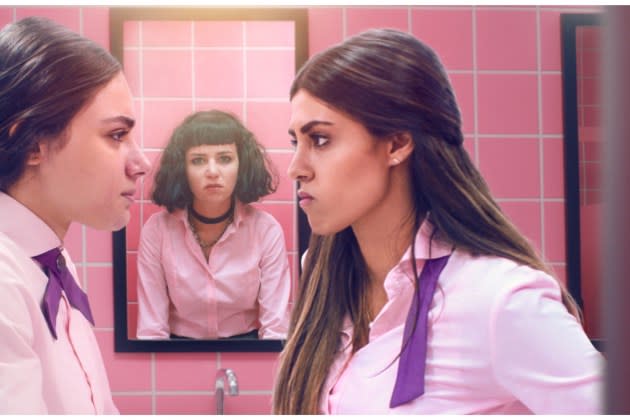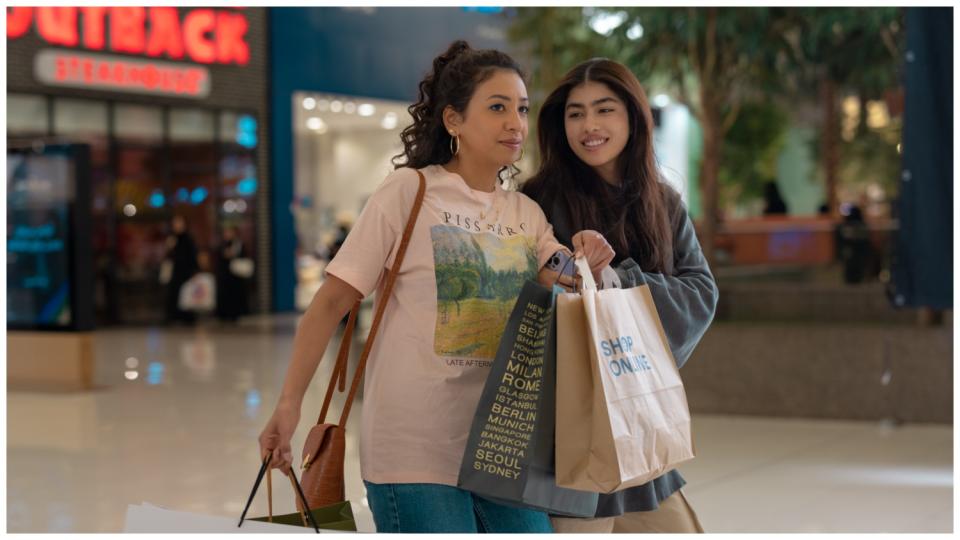Shows With Arab, Muslim Characters Go Global: ‘This Is a Culture That Loves Telling Stories’

Original TV series based on Arab and Muslim characters are beginning to go global, a Netflix executive said Saturday at the Red Sea Film Festival.
Ahmed Sharkawi, director of Arab content, Netflix Europe, Middle East and Africa, said that a new, distinctive voice was emerging from the region.
More from Variety
“Recently, a friend called me and her mother-in-law – who is 100% American – was recommending one of our Arab series [“Finding Ola,” starring Hind Sabri] to all her friends,” he said at a panel about writing for television.
“This wave [of Arab and Muslim stories] is beginning; the U.S. audience is becoming open to watching stories that are outside of the U.S. experience.”
The region was rich in a tradition of storytelling that meant there were many original scripts being written, he said.
“There are so many stories in this region that have not been told before, so [our job is] about harvesting that intellectual property.”
“This is a culture that loves telling stories; we all grew up on the folklore – of our grandmothers telling us stories, some true, others not. The challenge is for the writer to find the right point of view to tell those stories.”
Two Arab Netflix series have become big regional hits, he added. “Crashing of Eid” is a Saudi Arabian series about a U.K.-based Saudi woman’s teenage daughter who thinks that marrying her British-Pakistani boyfriend will be approved by her parents without question.
Jordan’s “AIRawabi School for Girls” – written by a women-only team with a largely female production crew – dives into the experience of teenaged girls at a single-sex school.
His comments at the panel – The Writer’s Journey: Navigating Scripts for Films, TV & Future Storytelling Formats – were echoed by other guest speakers.

New Zealand-based, Egyptian-born writer Mohamed Hassan used his own experience of growing up in Auckland – where he started his career as a journalist – to create “Miles From Nowhere” – a six-part series produced by Gibson Group and Homegrown Pictures about the impact of the “war on terror” on New Zealand’s small Muslim community.
“I became a screenwriter to tell a story that I felt was not being told – how the Muslim [diaspora] community experienced the war on terror,” he said.
“And the best way to tell that story was through comedy. The stories were alive and people were talking about them all the time – but for this sort of story we wanted a receptive ear from the other side, and we found that through comedy.”
“Miles From Nowhere” tells the story of how a young Kiwi-Muslim songwriter forms a dangerous friendship with the Security Intelligence Service agent spying on him, risking his whole community to fulfil his dreams.
Los Angeles-based producer at Cedar Tree Productions, Karim Zreik, who grew up in Lebanon before emigrating to the U.S. as his home country descended into civil war, said that the Arab world was seeing an explosion in original content just as the U.S. was “hitting the reset button” and cutting back on budgets.
“Budgets are slimming down – but at the end of the day, it is all about the writing, and what message your show’s characters have. Be bold, be daring and your writing will always stand out.”
Sheri Elwood, a Canadian-born showrunner and writer from Los Angeles – who is half-Lebanese – said that stories that work globally are ones that have at their core universal themes.
Elwood, who worked on Netflix hit series “Lucifer,” said that the key to understanding what on the surface is a genre series, was to see what is at its core: “It is a story about a young man with family issues, who does not get along with his father. That is why it works. This is a story about a broken, dysfunctional family.”
Best of Variety
Sign up for Variety’s Newsletter. For the latest news, follow us on Facebook, Twitter, and Instagram.


